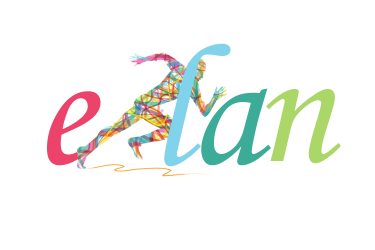Language is a complex set of utterances or sounds humans use to decode each others’ messages. Allow me to use the following metaphor: You turn your PC on, it asks you to log in. You punch in your password, a series of letters and numbers which the computer has to recognize and read to grant you access. If you enter the wrong number or letter, leave out or add one character, replace lower case with upper case, the computer will deny you access because it fails to identify or recognize your password.
Our brains work in a very similar way but we, humans, are intelligent and tolerant, so we connect the dots together and “grant access” anyway. So look at language as that massive sounds database with millions of passwords that we manage to memorize to communicate with each other and since, for example, native speakers of English carry more or less the same software (English), they often have no issues communicating with each other wherever they are (okay some Scottish and Irish are exceptions 😉 but you’ve got the gist of it.
How native speakers learn to speak English
They actually don’t learn it, they acquire it. Look, I have a 2 and 1/2-year-old daughter who already speaks some Japanese and English (as we have been residing in Japan for over a year now). She comes to me wanting to stand upon my belly and jump onto the ground. Now, every time she runs up to me wanting to do that, I get her to say “Can I jump?”. I do not give her permission to jump unless she tries to repeat these 3 words (which she doesn’t think of as words). I made it clear to her that without using this “password”, she won’t get what she wants, she won’t get to jump. After doing that a couple of times, she worked it out. She managed to comprehend the association between what she perceives purely as sound bites, “can i jump?”, and having her request met. She doesn’t obviously realize she’s using “can” as a modal, “I” as a pronoun and “jump” as a verb, all she knows is that whenever she produces this stream of sounds in that given order, she has her request met. Gradually, native speakers manage to gather a huge number of passwords to express any wish, request and much more.
How adult foreign language learners learn to speak English
They take a very different approach. They insist on understanding how language works, they rationalize it. They have to learn the rules, they need to label the words, they have to know that “can” is a modal, “I” is a pronoun, “jump” is a verb and that if you want to ask or make a request, you have to place the pronoun after the verb and make sure you include “?” at the end. That is not learning spoken language, that is learning ABOUT language, and there is a great difference between the two. I DO believe that learning ABOUT the language has its benefits in adult learning, however, it cannot take place in the classroom and will not be sufficient or effective. Learning English (or any other foreign language) only by rationalizing it is a losing bet.
The problem
Unfortunately, unlike infants, adults have already been programmed to use and recognize a certain sound system (their mother tongue). They have been utilizing the same set of passwords for so long that it has become incredibly difficult for them to have yet another software uploaded and another sound system mastered. The brain and muscles are already married, they communicate with each other seamlessly and effortlessly and do not want to be disturbed by other intrusive languages. When you start learning a new language, your brain starts to fool around behind its partner, the neural system or muscles, and to seek a different game altogether. Needless to say, your muscles or “neural pathways” don’t like that one bit, and the next thing you get is…CLASH!
The solution
Adult English learners need intensive training to build a new muscle memory and eradicate the influence of their mother tongue on English. They also need extensive exposure to English. Finally, they need to come to terms with the fact that all the passwords they learned (or acquired), when speaking English, are invalid and therefore will not be recognized. Consequently, their requests will not be met. Access denied!
A word of advice to adult English learners
Understand that in spoken English it is the sounds that carry the meanings and messages, not the letters. So whether or not you will be understood and “granted access” all depends on how well you produce your new sound bites.
So what do YOU think? What is the best way for adult learners to learn the language? If you are a teacher, what method or approach you have found mostly effective for improving fluency in English. If you are a learner, tell us about your experience and whether there is any particular approach you have found beneficial!

Leave a Reply